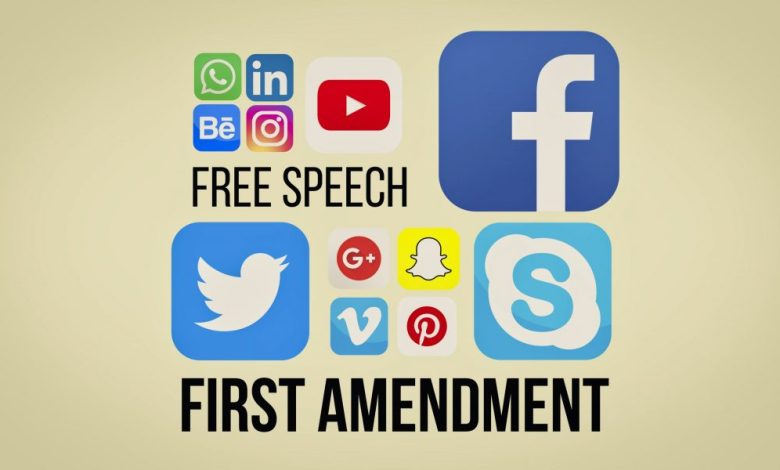
Introduction
Social media has become an integral part of our lives. It has revolutionized the way we interact with each other, express ourselves, and consume information. However, as social media platforms have grown in popularity, there has been an increasing concern over the impact they have on free speech and the First Amendment right. This article aims to examine the relationship between social media and free speech, exploring the ways in which social media platforms are impacting this fundamental right.
Defining Free Speech and the First Amendment
Before delving into the impact of social media on free speech, it is essential to define what we mean by free speech and the First Amendment. Free speech is a fundamental right enshrined in the United States Constitution, which protects individuals from government censorship and provides the right to express oneself without fear of persecution or punishment. The First Amendment is part of the Bill of Rights and guarantees the freedom of speech, religion, the press, assembly, and the right to petition the government for a redress of grievances.
The Importance of Free Speech
Free speech is a cornerstone of democracy and is essential to the functioning of a free and open society. It allows individuals to express their opinions and ideas freely, which promotes intellectual diversity and critical thinking. Free speech also enables citizens to hold their government accountable and serves as a check against the abuse of power. Without free speech, there can be no meaningful debate or discourse, and ideas can be suppressed, leading to an uninformed and closed-minded society.
The Rise of Social Media
Social media has transformed the way we communicate, share information, and express ourselves. Platforms like Facebook, Twitter, Instagram, and YouTube have become ubiquitous, and billions of people worldwide use them to connect with friends and family, consume news and information, and express themselves. Social media has enabled people to engage with a broader audience and has democratized the sharing of information, allowing individuals to bypass traditional media outlets and share their perspectives with the world.
The Impact of Social Media on Free Speech
While social media has been transformative in many ways, it has also had a significant impact on free speech. Social media platforms have become a central battleground for debates about free speech and have given rise to concerns about the limits of expression and the power of tech companies to shape public discourse.
Online Harassment and Hate Speech
One of the most significant challenges facing social media platforms is how to balance free speech with the need to prevent online harassment and hate speech. While social media has enabled people to express themselves freely, it has also provided a platform for hate speech, which can have a significant impact on individuals and communities. Hate speech can lead to discrimination, harassment, and violence, and can create a hostile environment that silences marginalized voices.
Social media platforms have taken steps to address online harassment and hate speech, with varying degrees of success. Some platforms, like Twitter and Facebook, have implemented policies that prohibit hate speech and have taken steps to remove offending content. However, there is an ongoing debate about how to define hate speech and what constitutes a violation of free speech. Some critics argue that social media platforms have become too aggressive in policing content and are restricting legitimate speech in the name of preventing hate speech.
Content Moderation and Censorship
Another issue facing social media platforms is how to manage content moderation and censorship. Social media platforms have tremendous power to shape public discourse, and their decisions about what content to promote or remove can have significant consequences. Platforms like Facebook and Twitter have come under fire for their content moderation practices, with critics arguing that they are not transparent enough about their decision-making processes and that they have too much power to shape public opinion.
Content moderation and censorship are particularly challenging issues when it comes to political speech. Social media platforms have been accused of bias and of silencing conservative voices, with some politicians calling for regulations to ensure
fairness in content moderation. Some conservatives have accused social media platforms of engaging in censorship, pointing to instances where content has been removed or accounts have been suspended.
However, social media platforms argue that they have a responsibility to remove content that violates their community guidelines, including content that promotes hate speech, harassment, or violence. They also argue that they have a duty to remove content that is misleading or false, particularly when it comes to political content. While there is no easy solution to the problem of content moderation, it is clear that social media platforms play a significant role in shaping public discourse and that their decisions can have far-reaching consequences.
Fake News and Misinformation
Another challenge facing social media platforms is the spread of fake news and misinformation. Social media has made it easier than ever to share information, but it has also made it easier for false information to spread rapidly. This has led to concerns about the impact of fake news on democracy and the ability of individuals to make informed decisions.
Social media platforms have taken steps to address the problem of fake news and misinformation, including partnering with fact-checking organizations and implementing algorithms that prioritize high-quality content. However, the problem of fake news remains a significant challenge, and there is an ongoing debate about how to combat it effectively.
The Role of Social Media in Supporting Free
Speech Despite the challenges facing social media platforms, they also play a vital role in supporting free speech. Social media has enabled individuals to share their perspectives and connect with others in ways that were not possible before. It has also provided a platform for marginalized voices, giving them a voice and enabling them to connect with others who share their experiences.
Social media has also played a critical role in supporting social movements and political activism. It has enabled individuals to organize and mobilize in ways that were not possible before and have provided a platform for voices that might otherwise have been silenced.
Conclusion
In conclusion, social media has had a significant impact on free speech and First Amendment right. While social media has provided a platform for individuals to express themselves freely and connect with others, it has also raised concerns about online harassment, hate speech, content moderation, censorship, and the spread of fake news and misinformation. It is clear that social media platforms have a significant role to play in shaping public discourse, and that their decisions can have far-reaching consequences.
Going forward, it is essential that social media platforms continue to grapple with these issues and find ways to balance free speech with the need to prevent online harassment and hate speech. They must also be transparent about their content moderation practices and their decision-making processes. Ultimately, it is up to all of us to ensure that social media remains a platform for free speech and democratic discourse, while also being a space that is safe and inclusive for everyone.
Read more How Much Does a Social Security Disability Lawyer Cost?
About Author
As an assignment help expert, Julia has extensive experience in researching and writing on a variety of topics. With a deep understanding of the impact of technology on society, including social media, they have provided valuable insights into the complex issues surrounding free speech and the First Amendment right. Their expertise in writing well-researched, informative, and engaging content has helped countless students achieve academic success. Julia is committed to delivering high-quality content that informs and educates readers while also sparking thoughtful discussion and debate




